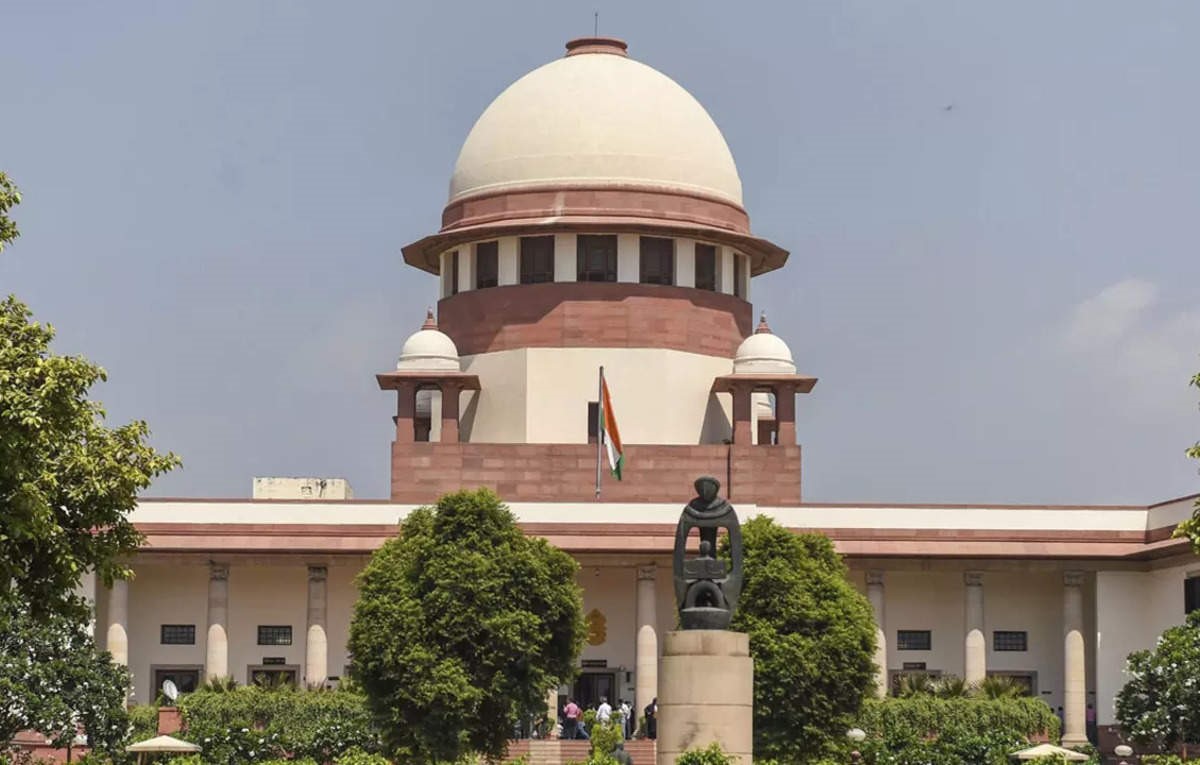Description

Copyright infringement not intended
Picture Courtesy: https://legal.economictimes.indiatimes.com/news/industry/false-declaration-of-assets-of-candidate-spouse-or-dependents-constitutes-corrupt-practice-sc/94213907
Context: The Supreme Court rules that candidates do not need to disclose every movable asset; only high-value or luxury items must be declared
Details
- The recent Supreme Court decision regarding the disclosure of movable properties by-election candidates sheds light on the scope and extent of such disclosure obligations.
Context of the Case
- An Independent MLA from the Tezu Assembly constituency in Arunachal Pradesh faced a challenge to his election victory in 2019. The challenge was based on allegations that Kri did not disclose certain movable properties, namely vehicles owned by his wife and son, in his nomination papers.

Supreme Court's Ruling
- Disclosure of Movable Assets: The Supreme Court clarified that candidates are not required to disclose every movable property owned by them or their dependents during election nominations. Only assets of substantial value or those reflecting a luxurious lifestyle need to be disclosed.
- Non-Disclosure of Vehicles: The Court examined the specific case of non-disclosure of three vehicles owned by Kri's wife and son. The Court found that these vehicles were either gifted or sold before the nomination filing, and thus, Kri was not obligated to disclose them.
- Impact on Candidature: The judgment emphasized that non-disclosure of every movable asset does not constitute a defect of substantial character unless such disclosure impacts the candidate's lifestyle or candidature significantly.
- Voter's Right to Know: The Court rejected the contention that voters have an absolute right to know every detail about a candidate's life. It upheld the candidate's right to privacy regarding matters that are irrelevant to the public office candidacy.
- Criteria for Disclosure: The Court outlined that disclosure of movable assets is necessary if they are of substantial value or if they reflect the candidate's lifestyle significantly. For instance, high-value assets like expensive watches may need to be disclosed, unlike everyday items of nominal value.
- No Hard and Fast Rule: The judgment clarified that there is no strict rule or formula for determining which assets require disclosure. Each case must be evaluated based on its unique circumstances and facts.
|
Declaration Of Assets By Candidates
●The Supreme Court has made it mandatory for candidates contesting elections to declare the sources of income for themselves, their spouses, and dependents. This ruling is a significant step towards ensuring electoral accountability and preventing corrupt practices in the political sphere.
●Non-disclosure of income sources will be considered a corrupt practice under the law and can lead to a lawmaker's disqualification.
●The Supreme Court emphasized that a disproportionate increase in assets without credible income sources is constitutionally impermissible and may constitute an offence under anti-corruption laws.
|
Implications and Conclusion
- The Supreme Court's decision provides clarity on the disclosure obligations of election candidates concerning movable assets.
- It underscores the importance of transparency without imposing unnecessary burdens on candidates. This ruling aims to strike a balance between voters' right to information and candidates' right to privacy, ensuring fair and informed electoral processes.
- By setting aside the High Court's decision and upholding Kri's election victory, the Supreme Court reaffirmed the principle that election challenges must be based on substantive grounds related to the candidate's eligibility and compliance with electoral laws.
Source:
The Hindu
|
PRACTICE QUESTION
Q. Considering the Election Commission's role as a guardian of free and fair elections in India, how does the Model Code of Conduct (MCC) empower the Commission to ensure the adherence of political parties to ethical practices during elections?
|















